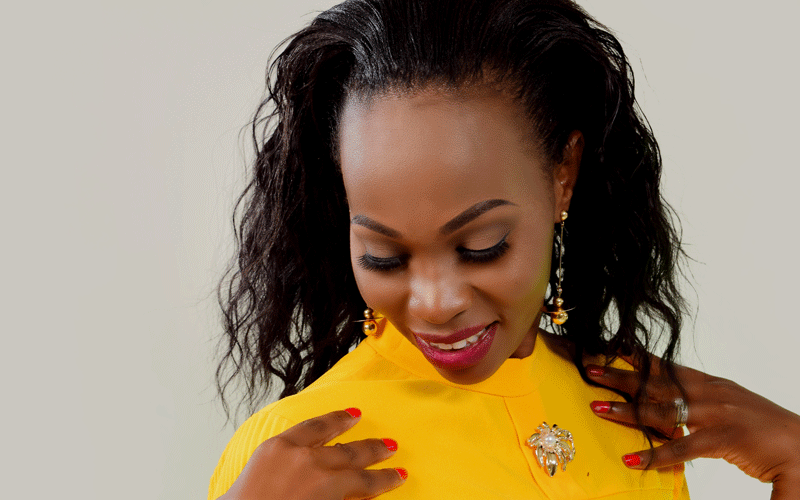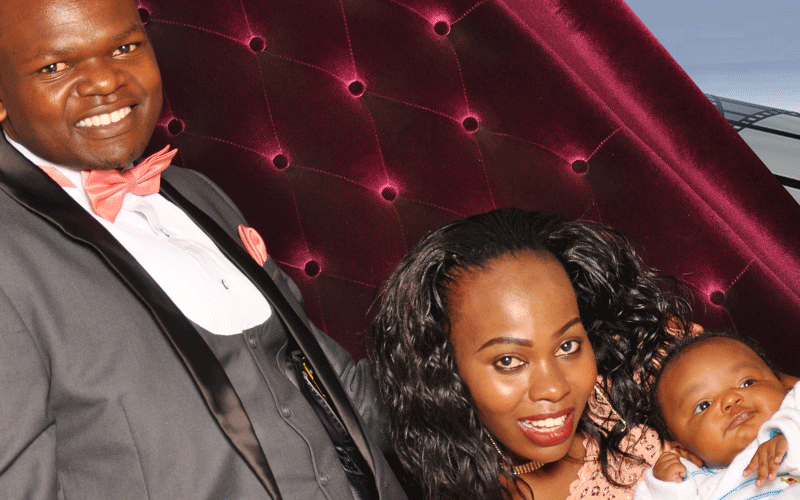Six pregnancies; a stillbirth, four miscarriages and a baby
By Evelyn Makena, June 17, 2020She woke up in the evening curled in her bed and with tears draining her pillow. SHINEL WANJA, could not tell how long she had been asleep, but on waking up, the doctors words kept ringing in her head. “There is no heartbeat…”
On December 7, 2013, Shinel Wanja, a public relations specialist and Timothy Makamu an engineer and pastor got married in a beautiful wedding in Nairobi.
The pair had been friends for several years, dated for six months with a lot of travelling between Abu Dhabi and Dubai, United Arab Emirates where they were working before they decided it was time to settle down. After the wedding, Wanja decided to settle in Kenya.
At 25 years, she was not eager to have children immediately, but in June 2014, she found out she was pregnant.
Wanja remembers how excited they were as a couple when they learnt during one of her prenatal check-ups that they would be having a baby boy.
Except for minor spotting, she had experienced when she was eight weeks pregnant, the pregnancy had no complications .
“The doctors said that the spotting was nothing to worry about,” she says.
At 32 weeks, she went back to hospital for a scan, but realised something was wrong.
“The doctor explained having no heartbeat meant that the baby was dead in the womb and I had to be induced into labour to deliver him,” she says.
After contacting her husband who was abroad at the time, they both agreed to seek a second opinion in a different hospital.
The results were the same and so on the same week, Wanja delivered the baby boy after eight hours of being in labour.
“He looked exactly like his dad only that he was lighter. It seemed as if he was just asleep.
The doctors did not have a concrete explanation as to why he had died,” she says.

The chord was not around the neck so that was ruled out as a cause of death.
His birth was followed with hours of excruciating pain for Wanja as doctors conducted uterus evacuation to remove a retained placenta.
Holding him, Wanja felt that as his mother he had contributed to his death. “I should have prayed more, he would be alive if I had loved him more,” she blamed herself.
The next day as she left hospital with her friend and sister she felt torn apart.
“I saw husbands bring their wives flowers and gifts and was filled with shame. I felt like I had failed myself and the society,” she recalls.
Eager to conceive
But it’s her husband’s gesture that encouraged her to start her journey of healing.
“On the day I was discharged, my husband had just landed from Dubai. He came home carrying gifts, hugged me and reminded me that I was enough despite us losing the baby. He did not blame me, empathised instead,” she says.
An avid reader, Wanja buried herself in books in the months that followed. She enrolled for a degree at Moi University to keep her mind occupied. Fast forward to early 2016, Wanja was pregnant again.
“We were so I excited. We thought to ourselves that God had remembered us again,” she says.
But, their joy was short-lived when she started spotting at eight weeks again, and on getting to hospital, doctors told her that she had miscarried.
Broken by loss, Wanja says she immersed herself in the word of God to seek for answers and healing.
The couple did not give up on their quest to have children. Towards the end of 2016, Wanja was pregnant again.
This time round, her husband was home after he resigned from his job in Dubai to settle in Kenya.
The couple even consulted a different gynaecologist to get a different medical opinion.
Seven weeks along her pregnancy, a scan showed that the baby had no heartbeat.
“It did not sound alarming and the doctor advised me to return after some weeks for check-up,” she says. At 10 weeks, the heartbeat could not still be detected.
Doctors revealed to her that the foetus had stopped growing in what they described as a blighted ovum.
For the second time, Wanja had to undergo uterus evacuation to remove the retained pregnancy tissue.
At this point the gynaecologist advised the couple to wait for another six months before trying to conceive.
“But I was so eager to conceive because I was afraid that I may never have children,” she says. Five and half months after her third pregnancy, Wanja was pregnant again.
Like the previous two pregnancies, she had a miscarriage at 10 weeks. Then came the horrific uterus evacuation procedure.
A prayer of faith
Wanja gave up on the hope of having children of her own and considered adopting. “I shared my desire to adopt children with my husband.
He was supportive, but was assured we would have children of our own,” she says.
What hurt the couple most was that no matter how many times they changed hospitals no doctor seemed to have an answer as to what was wrong.
Wanja lost her fifth pregnancy, that same year, at 12 weeks through a miscarriage even after seeing a different gynaecologist and taking medication to strengthen her uterus.
The budding gospel artiste and youth mentor says she never lost hope. She remembers one incident in her house that she termed as the culmination of her faith in having children.
“I went room by room praying and calling our unborn children by the names we had given them telling them to come and have breakfast.
I told God that I wanted my house to be filled with children.
Luckily, my husband was not home or else he would have thought that I had lost it,” she reveals.
And on May 30 2018, the couple welcomed their daughter Charissa Eliyanah Makamu at exactly 40 weeks of pregnancy.
“Charissa, which means God’s abounding grace was our miracle baby. We believe that we will have many more babies,” she say.
By sharing her story on her social media pages, Wanja says she has met so many women who are broken because of loss of babies.
“Some have been threatened with divorce, others depressed due to stigma of childlessness,” she says.
Wanja reckons that society is so unkind to women struggling with childlessness. But she observes that the worth of a woman should not be measured by the number of children they have.
In her journey, Wanja is grateful to have had a strong support system; parents and in-laws who never judged her, a husband who always stood by her side, friends and siblings who encouraged her. That and her faith in God helped her pull through the most difficult times.
